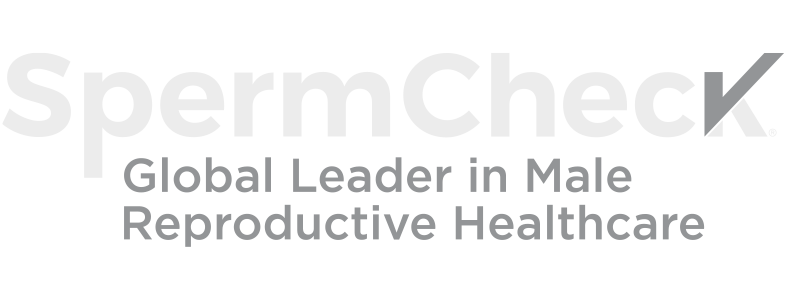
Craig Ramsay (left), here with his new husband Brandon Liberati, used an at home fertility kit in an attempt to help his sister become a mother.
It’s tough enough for a guy to find out he has a low sperm count. But imagine finding out in front of a 12-person TV crew.
That was the case for Craig Ramsay, who learned the results of his at-home male fertility test in front of the cameras of Bravo’s “Newlyweds: The First Year.”
Craig was trying to help his husband’s sister, Bree, and her wife have a child by donating sperm. But after four unsuccessful tries, the pressure was on Craig to check his fertility.
“I’m a fitness professional, and I figured I’m the embodiment of health and wellness,” said Craig, a celebrity fitness expert in Los Angeles. “I didn’t actually think that this could be my issue. I thought that it would have been Bree’s issue because she is trying to have a child later in life and it’s her first attempt at a biological child.”
But Craig’s husband, Brandon Liberati, brought home SpermCheck, an over-the-counter male fertility test, for Craig to use. And in the privacy of their home—and 1 million others—he found out his sperm count was low.
“The hesitation for me to get checked was because I didn’t want to go into a doctor’s office.”
I didn’t want to expose myself to the fact that I could have this issue,” Craig said. “A lot of times people think it’s actual erectile dysfunction or problems with you being a man and I didn’t want that on display, especially being in the public eye.”
GAY MEN’S LONG JOURNEY TO FATHERHOOD
The LGBT community faces unique challenges when it comes to fatherhood. Because having children must involve more parties, it takes more extensive family planning.
Gay men must either choose traditional surrogacy, where the surrogate is artificially inseminated with the intended biological father’s sperm, or gestational surrogacy, which involves one woman donating eggs for in vitro fertilization and another woman carrying the child.
On top of that, the cost of surrogacy is staggering. Expenses include surrogacy agency fees, gestational carrier fees, travel expenses, in vitro costs, attorney’s fees, and medical insurance.
The average cost of one in vitro fertilization cycle is $12,400 (it can often take multiple cycles to fertilize an egg) and total surrogacy cost range from $50,000 to $100,000.
That’s why it’s important for gay men to find out their fertility status as soon as possible, to save time and money. (You can avoid the awkward doctor’s office visit and check your sperm count at home in minutes with SpermCheck.)
SINGLE OR MARRIED, GAY FATHERHOOD IS ON THE RISE
Despite the costs and challenges, both single and coupled gay men are becoming fathers. The Williams Institute estimates same-sex couples are raising 200,000 children, and LGBT singles are raising more than 1 million kids.
Craig and Brandon hope to have their own children one day after they help Bree become a mother. Now that Craig knows his fertility status and has taken measures to improve it, fatherhood can be a reality.
“Fertility is a private matter between you and your spouse or with whoever you’re creating a family with,” Craig said. “The at-home check is something that is intimate and it simplifies things and it makes it more cost-efficient.
“Especially for the LGBT community, where there are certain regulations in place to create obstacles for us to be able to have children, those are financially huge responsibilities for us as LGBT people, so if we can cut cost by doing an at-home test, I highly recommend it.”
Just keep the camera crew out.



